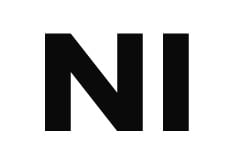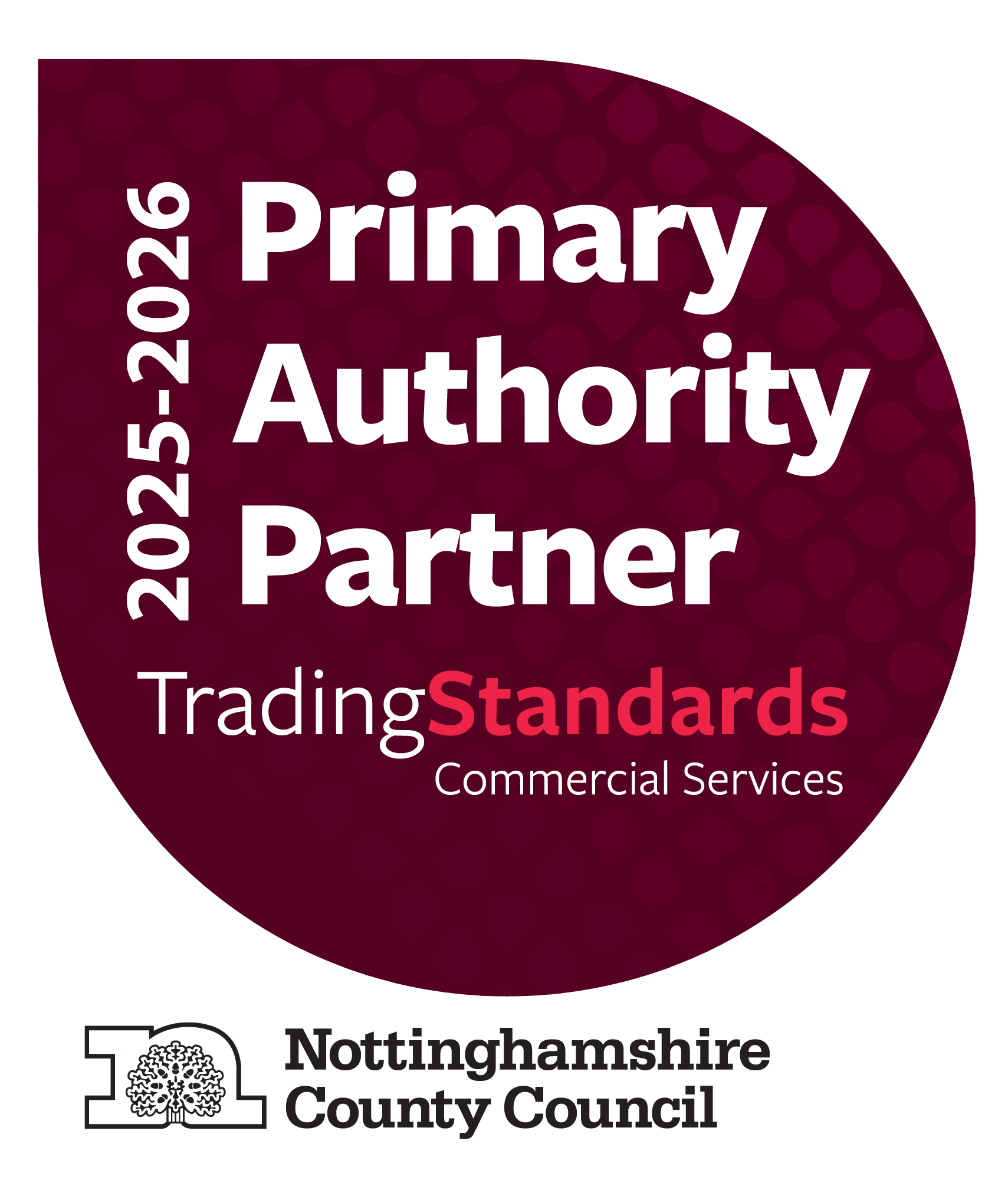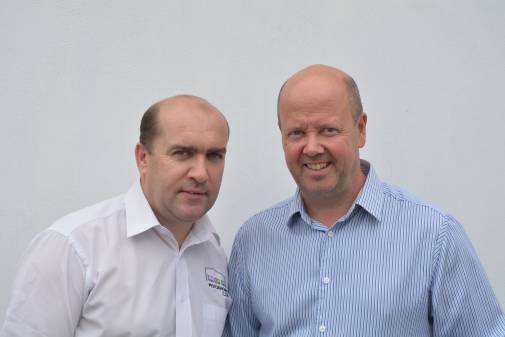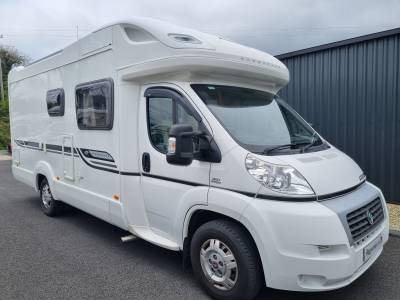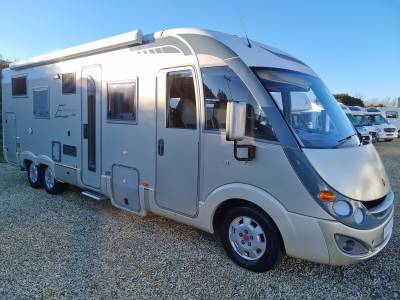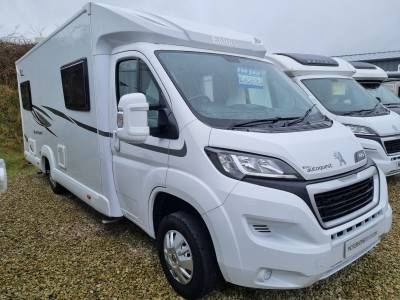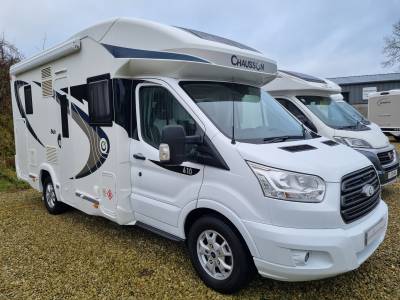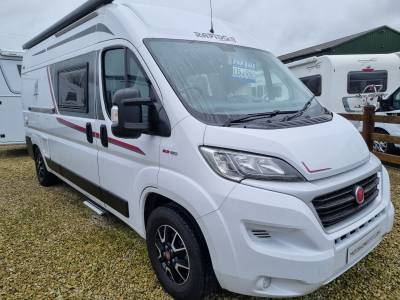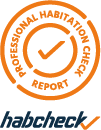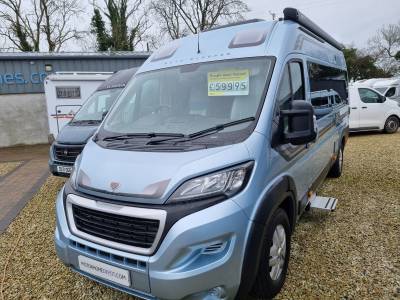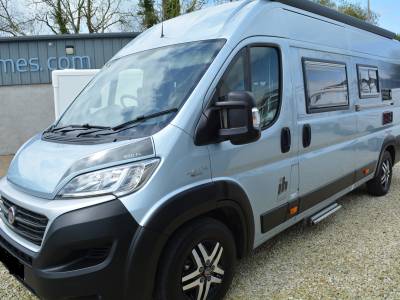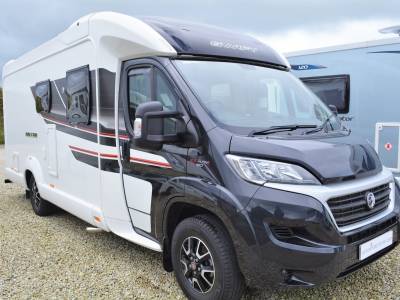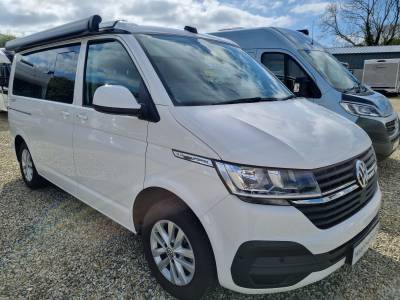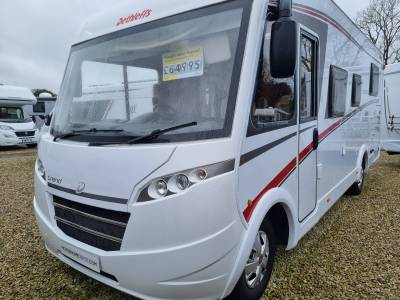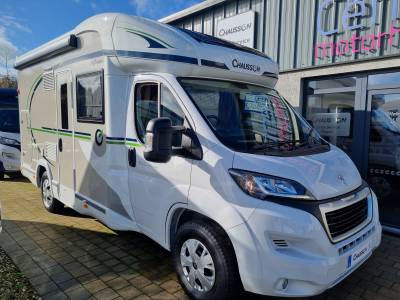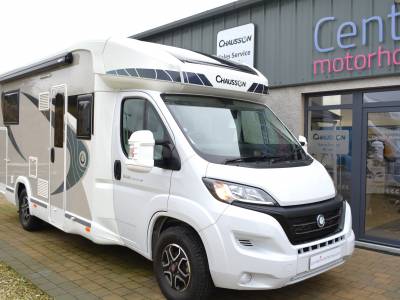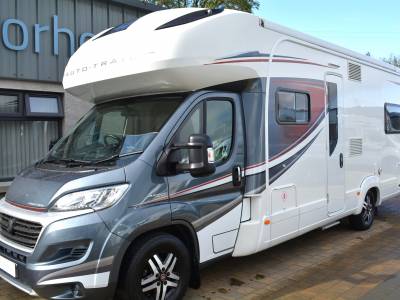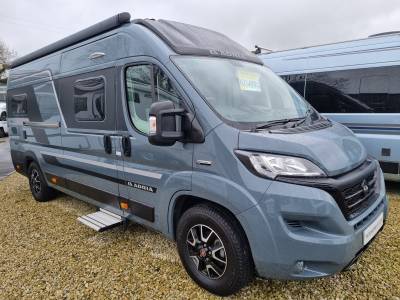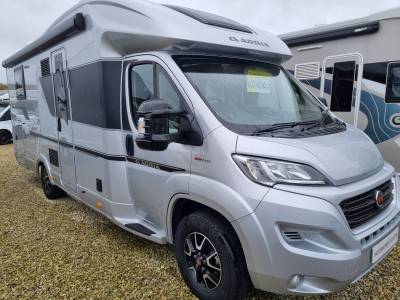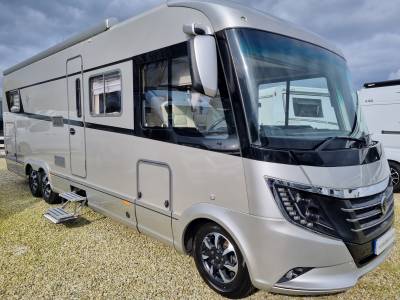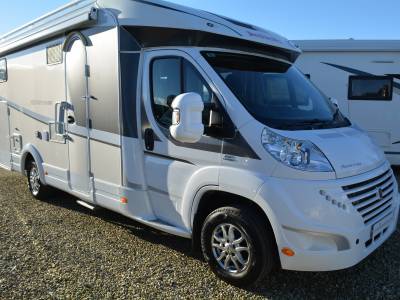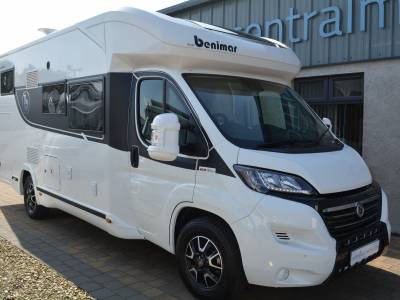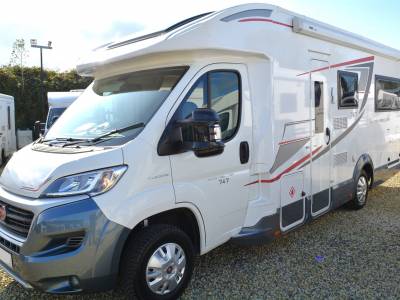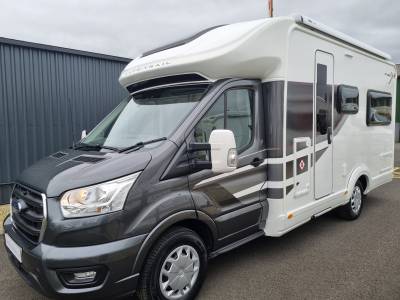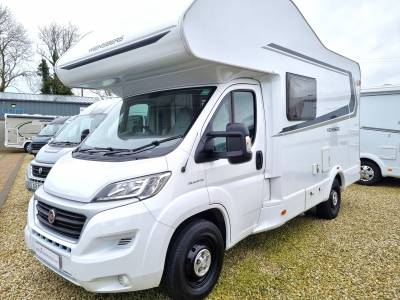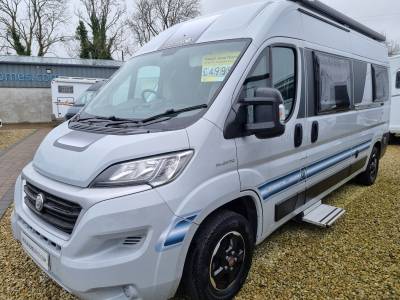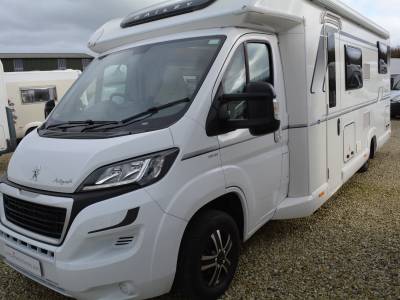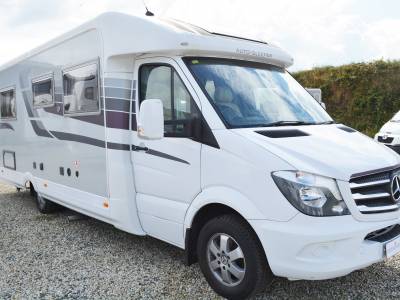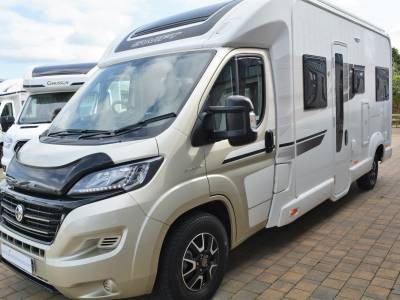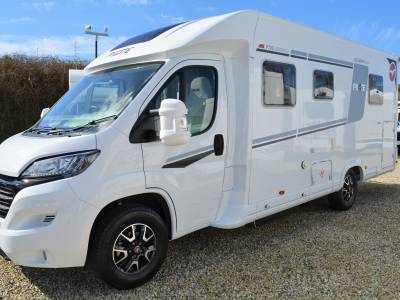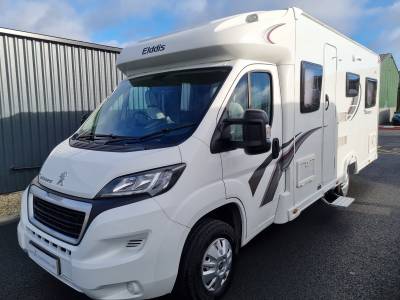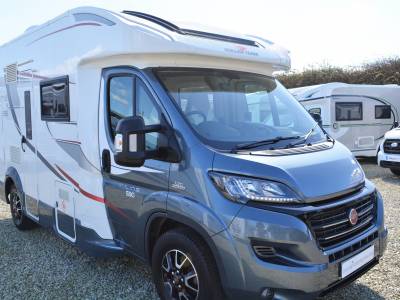Motorhomes For Sale Near Me
Looking to buy a motorhome in your local area? We are the local specialists and offer a wide range of motorhomes across a range of sizes and prices. We have motorhomes for sale in Belfast, Derry, Lisburn, Newtownabbey, and Bangor.
Northern Ireland (Irish: Tuaisceart Éireann [ˈt̪ˠuəʃcəɾˠt̪ˠ ˈeːɾʲən̪ˠ] ( listen);[7] Ulster-Scots: Norlin Airlann) is a part of the United Kingdom that is variously described as a country, province, territory or region.[8][9][10][11][12] Located in the northeast of the island of Ireland, Northern Ireland shares a border to the south and west with the Republic of Ireland. In 2011, its population was 1,810,863,[3] constituting about 30% of the island's population and about 3% of the UK's population. The Northern Ireland Assembly (colloquially referred to as Stormont after its location), established by the Northern Ireland Act 1998, holds responsibility for a range of devolved policy matters, while other areas are reserved for the British government. Northern Ireland co-operates with the Republic of Ireland in several areas.[13]
listen);[7] Ulster-Scots: Norlin Airlann) is a part of the United Kingdom that is variously described as a country, province, territory or region.[8][9][10][11][12] Located in the northeast of the island of Ireland, Northern Ireland shares a border to the south and west with the Republic of Ireland. In 2011, its population was 1,810,863,[3] constituting about 30% of the island's population and about 3% of the UK's population. The Northern Ireland Assembly (colloquially referred to as Stormont after its location), established by the Northern Ireland Act 1998, holds responsibility for a range of devolved policy matters, while other areas are reserved for the British government. Northern Ireland co-operates with the Republic of Ireland in several areas.[13]
Northern Ireland was created in 1921, when Ireland was partitioned by the Government of Ireland Act 1920, creating a devolved government for the six northeastern counties. The majority of Northern Ireland's population were unionists, who wanted to remain within the United Kingdom.[14] They were generally the Protestant descendants of colonists from Great Britain. Meanwhile, the majority in Southern Ireland (which became the Irish Free State in 1922), and a significant minority in Northern Ireland, were Irish nationalists and Catholics who wanted a united independent Ireland.[15][16][17][18] Today, the former generally see themselves as British and the latter generally see themselves as Irish, while a Northern Irish or Ulster identity is claimed by a large minority from all backgrounds.[19]
The creation of Northern Ireland was accompanied by violence both in defence of and against partition. During 1920–22, the capital Belfast saw major communal violence, mainly between Protestant unionist and Catholic nationalist civilians.[20] More than 500 were killed[21] and more than 10,000 became refugees, mostly Catholics.[22] In the following decades, Northern Ireland had an unbroken series of Unionist Party governments.[23] There was informal mutual segregation by both communities,[24] and the Unionist governments were accused of discrimination against the Irish nationalist and Catholic minority,[25] in what First Minister of Northern Ireland, David Trimble, called a "cold house" for Catholics.[26] In the late 1960s, a campaign to end discrimination against Catholics and nationalists was opposed by loyalists, who saw it as a republican front.[27] This unrest sparked the Troubles; a thirty-year conflict involving republican and loyalist paramilitaries and state forces, which claimed over 3,500 lives and injured 50,000 others.[28][29] The 1998 Good Friday Agreement was a major step in the peace process, including paramilitary disarmament and security normalisation, although sectarianism and segregation remain major social problems, and sporadic violence has continued.[30]
The economy of Northern Ireland was the most industrialised in Ireland at the time of Partition of Ireland, but declined as a result of the political and social turmoil of the Troubles.[31] Its economy has grown significantly since the late 1990s. The initial growth came from the "peace dividend" and increased trade with the Republic of Ireland, continuing with a significant increase in tourism, investment and business from around the world. Unemployment in Northern Ireland peaked at 17.2% in 1986, dropping to 6.1% for June–August 2014 and down by 1.2 percentage points over the year,[32] similar to the UK figure of 6.2%.[33]
Cultural links between Northern Ireland, the rest of Ireland, and the rest of the UK are complex, with Northern Ireland sharing both the culture of Ireland and the culture of the United Kingdom. In many sports, the island of Ireland fields a single team, with the Northern Ireland national football team being an exception to this. Northern Ireland competes separately at the Commonwealth Games, and people from Northern Ireland may compete for either Great Britain or Ireland at the Olympic Games.
Belfast (/ˈbɛlfæst/ BEL-fast, /-fɑːst/ -fahst;[a] from Irish: Béal Feirste [bʲeːlˠ ˈfʲɛɾˠ(ə)ʃtʲə], meaning 'mouth of the sand-bank ford'[4]) is the capital and largest city of Northern Ireland, standing on the banks of the River Lagan on the east coast. It is the 12th-largest city in the United Kingdom[5] and the second-largest in Ireland. It had a population of 345,418 in 2021.[2]
By the early 19th century, Belfast was a major port. It played an important role in the Industrial Revolution in Ireland, becoming briefly the biggest linen-producer in the world, earning it the nickname "Linenopolis".[6] By the time it was granted city status in 1888, it was a major centre of Irish linen production, tobacco-processing and rope-making. Shipbuilding was also a key industry; the Harland and Wolff shipyard, which built the RMS Titanic, was the world's largest shipyard.[7] Belfast as of 2019 has a major aerospace and missiles industry. Industrialisation, and the inward migration[8] it brought, made Belfast Northern Ireland's biggest city. Following the partition of Ireland in 1921, Belfast became the seat of government for Northern Ireland. Belfast's status as a global industrial centre ended in the decades after the Second World War. Belfast suffered greatly during the violence that accompanied the partition of Ireland, and especially during the more recent conflict known as the Troubles.
Belfast is still a port with commercial and industrial docks, including the Harland and Wolff shipyard, dominating the Belfast Lough shoreline. It is served by two airports: George Best Belfast City Airport, 3 miles (5 kilometres) from the city centre, and Belfast International Airport 15 miles (24 kilometres) west of the city. The Globalization and World Cities Research Network (GaWC) listed Belfast as a Gamma + global city in 2020.[9]
Belfast's population is evenly split between its Protestant and Catholic residents.[142] These two distinct cultural communities have both contributed significantly to the city's culture. Throughout the Troubles, Belfast artists continued to express themselves through poetry, art and music. In the period since the Good Friday Agreement in 1998, Belfast has begun a social, economic and cultural transformation giving it a growing international cultural reputation.[210] In 2003, Belfast had an unsuccessful bid for the 2008 European Capital of Culture. The bid was run by an independent company, Imagine Belfast, who boasted that it would "make Belfast the meeting place of Europe's legends, where the meaning of history and belief find a home and a sanctuary from caricature, parody and oblivion."[211] According to The Guardian the bid may have been undermined by the city's history and volatile politics.[212]
In 2004–05, art and cultural events in Belfast were attended by 1.8 million people (400,000 more than the previous year). The same year, 80,000 people participated in culture and other arts activities, twice as many as in 2003–04.[213] A combination of relative peace, international investment and an active promotion of arts and culture is attracting more tourists to Belfast than ever before. In 2004–05, 5.9 million people visited Belfast, a 10% increase from the previous year, and spent £262.5 million.[213]
The Ulster Orchestra, based in Belfast, is Northern Ireland's only full-time symphony orchestra and is well renowned in the United Kingdom. Founded in 1966, it has existed in its present form since 1981, when the BBC Northern Ireland Orchestra was disbanded.[214] The music school of Queen's University is responsible for arranging a notable series of lunchtime and evening concerts, often given by renowned musicians which are usually given in The Harty Room at the university (University Square).
Lisburn (/ˈlɪzbɜːrn, ˈlɪsbɜːrn/; from Irish: Lios na gCearrbhach[1] [ˌl̠ʲɪsˠ n̪ˠə ˈɟaːɾˠwəx]) is a city in Northern Ireland. It is 8 mi (13 km) southwest of Belfast city centre, on the River Lagan, which forms the boundary between County Antrim and County Down. First laid out in the 17th century by English and Welsh settlers, with the arrival of French Huguenots in the 18th century, the town developed as a global centre of the linen industry.
In 2002, as part of Queen Elizabeth's Golden Jubilee celebrations, the predominantly unionist borough was granted city status alongside the largely nationalist town of Newry. With a population of 45,370 in the 2011 Census.[2] Lisburn was the third-largest city in Northern Ireland. In the 2016 reform of local government in Northern Ireland Lisburn was joined with the greater part of Castlereagh to form the Lisburn City and Castlereagh District with a combined population of over 130,000.[3]
The town was originally known as Lisnagarvy (also spelt Lisnagarvey or Lisnagarvagh) after the townland in which it formed. This is derived from Irish Lios na gCearrbhach 'ringfort of the gamesters/gamblers'.[4]
In the records, the name Lisburn appears to supersede Lisnagarvey around 1662.[5] One theory is that it comes from the Irish lios ('ringfort') and the Scots burn ('stream').[4] Some speculate that -burn refers to the burning of the town during the Irish Rebellion of 1641, but there is evidence of earlier use. An English soldier later recalled the rebels having entered the town of Lisnagarvy at "a place called Louzy Barne".[5][6] In the town's early days, there were possibly two ringforts: Lisnagarvy to the north and Lisburn to the south, and the latter may simply have been easier for the English settlers to pronounce.[5]


